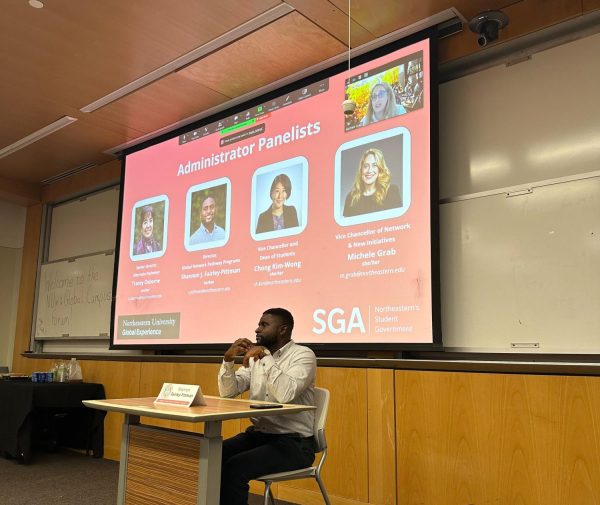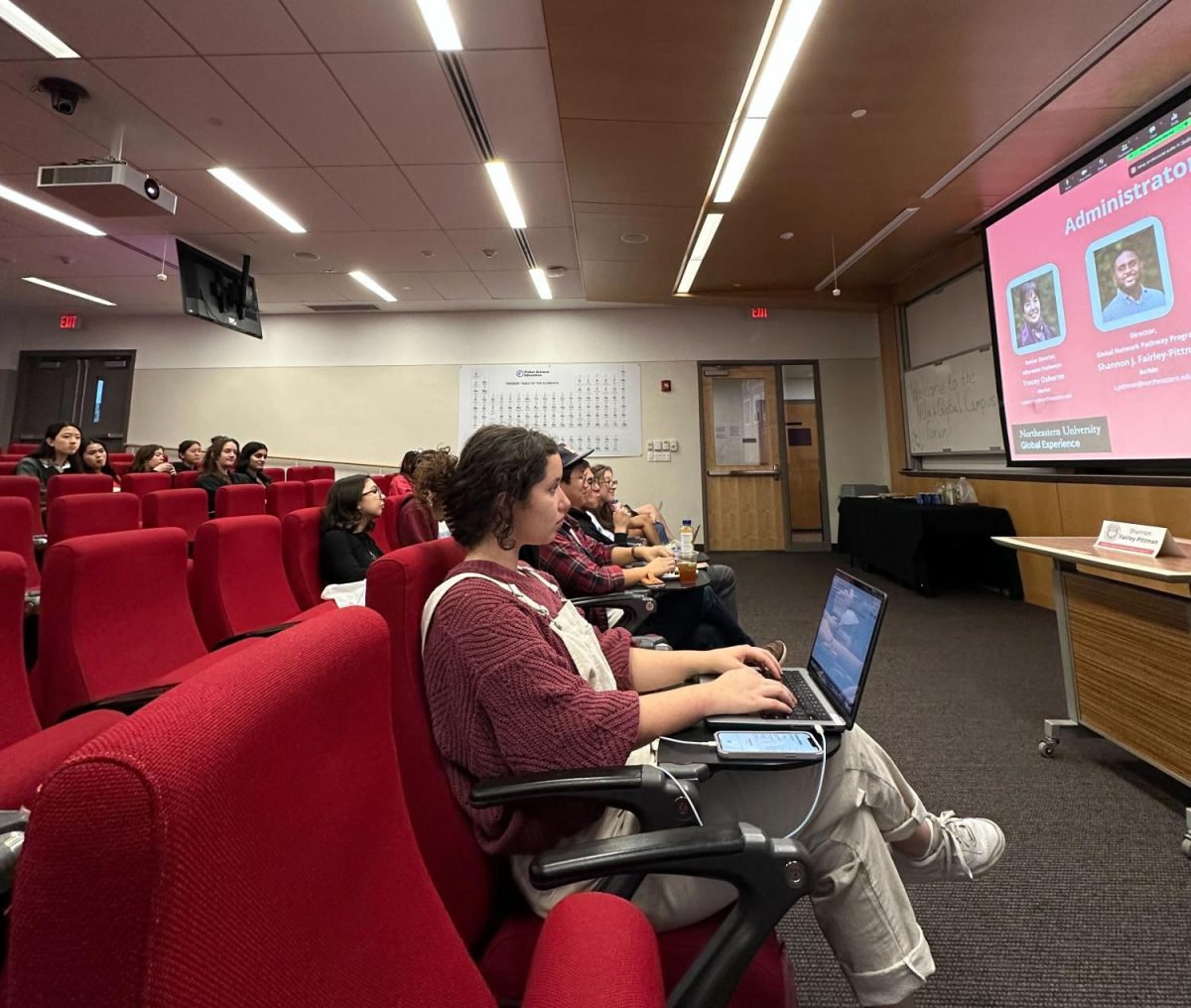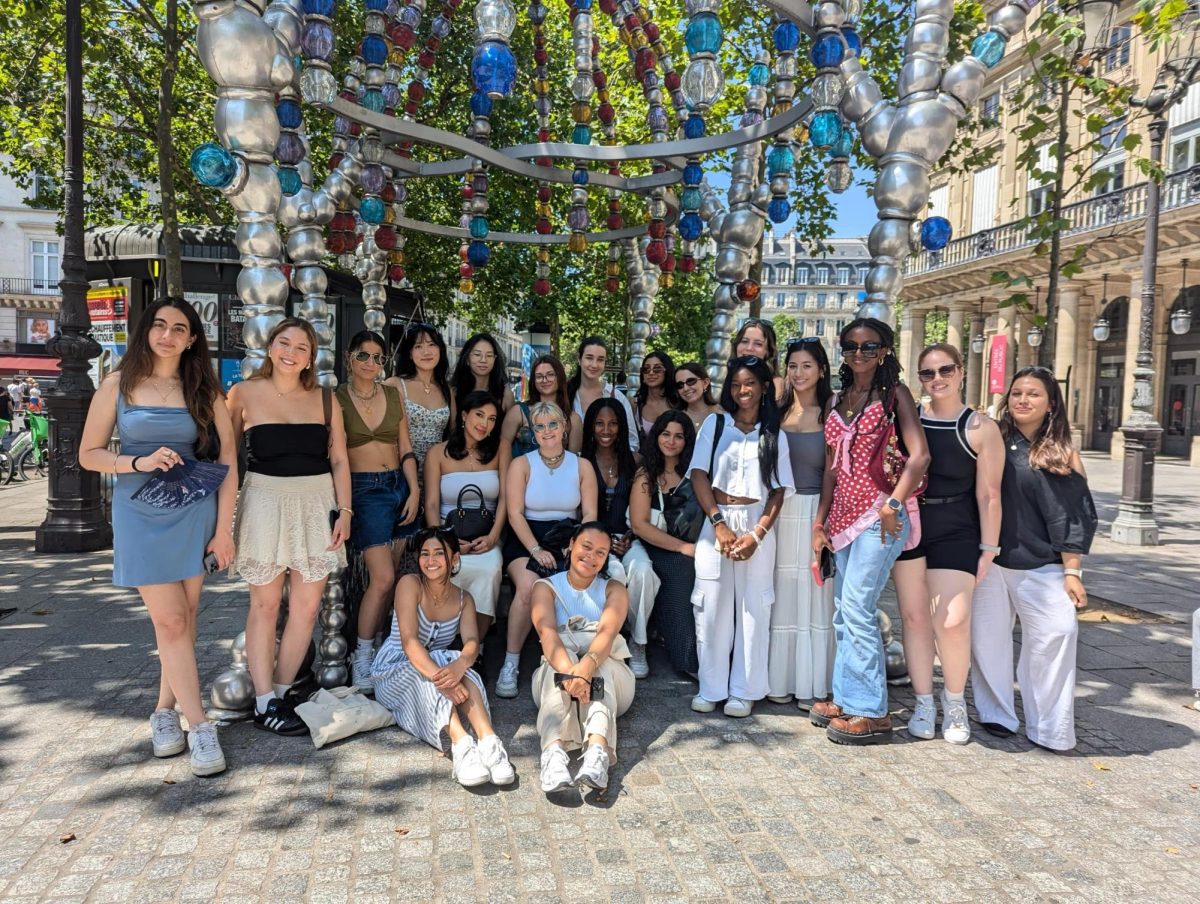Northeastern’s Student Government Association, or SGA, held a Global Campus Town Hall in Richards Hall on Oct. 12 to discuss students’ experiences in the NU Bound, N.U.in and Global Scholar programs. The forum aimed to provide students with a platform to give feedback to those in charge of these programs in hopes of improving future student experiences. However, many students felt the faculty lacked quality responses and kept attempting to steer the conversation away from complaints.
“I feel like the forum was supposed to be a place for us to guide the conversation and to talk about the things that we experienced and ask for accountability, but it didn’t come across that way,.” said Sydney VanDuesen, an attendee and second-year environmental and sustainability sciences major.
Olivia Oestreicher, the Student Government Association, or SGA’s director of intercollegiate affairs and a third-year political science and communications combined major, led the forum. Established this year, the new committee deals explicitly with the undergraduate campuses in London and Oakland, where the NU Bound programs are located.
The administrator panelists included Shannon Fairley-Pittman, director of global network pathway programs; Chong Kim-Wong, vice chancellor and dean of students; Tracey Osborne, senior director of alternate pathways; and Michele Grab, vice chancellor of network and new initiatives.
Fairley-Pittman opened the conversation by discussing some elements of global programs that the administration is in the process of implementing, like assigning global students on campus advisors.
“Last year, we used the model where we relied on the Boston advising system to support our Oakland and London students, which we’ve realized doesn’t work particularly with the time difference,” Fairley-Pittman said. “We’ve addressed that quickly; there are now four dedicated advisors for the Global Scholars students in Oakland, and those four advisors are connected back to the Boston campus.”
Michael Chang, a second-year sociology major who spent his first year in Oakland, described frustration with his advising experiences.
“I had to do everything manually. I had to go through the NUpath and cross-reference all my classes to figure out what to take when I got to Boston,” Chang said. “I had to do a four-year plan independently because we didn’t have in-person advising available.”
VanDuesen shared a similar experience during her first year in Oakland.
“My advisor didn’t even know he was supposed to advise me,” VanDuesen said. “I had to schedule a meeting with him, and it wouldn’t go through because technically, I wasn’t his student, even though [Northeastern] told me, ‘This is your advisor.’ He told me he can’t help me until I step foot on the Boston campus and become matriculated.”

At points throughout the forum, moderators and panelists tried to solicit positive feedback from students, frustrating attendees who wanted to focus on grievances and issues with their time in London and Oakland.
“There were many moments where they said, ‘Let’s talk about the positives,’” VanDuesen said.
A key issue VanDuesen and other students highlighted during the forum was NU Bound students’ lack of a GPA. Because they are classified as transfer students, NU Bound students do not have a GPA entering the Boston campus. This can be a major stressor, students said, as they will only have their fall GPA to apply to co-ops in the spring.
“Are you guys telling people they’re pre-matriculated as Bound students?” VanDuesen asked during the forum. “[Northeastern] didn’t tell us that we couldn’t get financial aid, federal loans and our grades wouldn’t transfer over.”
Fairley-Pittman said the administration was more transparent this past year about what being an NU Bound student meant, not just during students’ time abroad but through their transition to Boston.
“We didn’t understand why we couldn’t have a GPA if Northeastern technically owned the Oakland campus,” Chang told The News after the forum. “We had some Northeastern professors [teaching] the Northeastern curriculum, so I needed clarification on why we couldn’t have the same transcript as Boston students. It’s frustrating. It feels like the fact that we don’t have this GPA is still following and affecting us now.”
Brianne David-Sibo, a second-year psychology and criminal justice combined major who was a part of NU Bound Oakland last year, shared similar sentiments to Chang and VanDuesen.
“They tell us we’re not behind because everyone’s got their path,” David-Sibo said. “But I feel behind. I feel below all the other people on campus in their first year who now get to go on co-op.”
One of the most significant complaints that NU Bound students collectively share is the cost of tuition, which is roughly $75,000 for one year.
“Oakland was like a cash farm,” Chang said. “The fact that we weren’t eligible for financial aid and had to pay full tuition when we didn’t have a well-funded and rounded campus felt like [Northeastern] just wanted to make more money.”
VanDuesen said she felt like the entire program was rushed, and Northeastern scrambled to send students to these programs before they were fully developed. During the last weeks of her summer on the Oakland campus, VanDuesen said she saw changes as an orientation leader.
“Over the summer, the whole thing has been remodeled. They’re implementing new programs and bringing on new staff,” she said. “I understand they are trying, but it’s a sore spot where they couldn’t do that for us last year. They essentially used us as guinea pigs, which didn’t feel great as we were paying so much in tuition and fees.”
While the forum was marketed as an open conversation for students who dealt with these programs first-hand, many attendees felt unsatisfied.
“I think it was exciting that they would ask [us] to tell them about our experience, but when we got into it, they would turn the conversation to what worked,” David-Sibo said. “Those comments took me aback. I thought, ‘Oh, you don’t want to know about our real experience? You only want to know the good parts?’”










